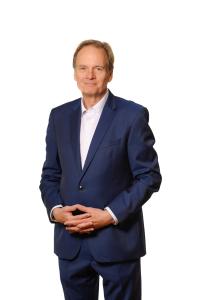Event reports
Last November Amadou Mahtar BA from the African Media Initiative (AMI) announced a new type of project: The initiative worth one-million dollars in prizes, African News Innovation Challenge (ANIC), had set itself the goal of finding and promoting digital innovations in the African media. Among the international circle of supporters, including Google and the US State Department, is also the regional Media Programme of the Konrad-Adenauer-Stiftung (KAS) with headquarters in Johannesburg. Anyone with a suitable idea could participate in the competition. After more than 513 entries have been screened - forty project proposals were then selected from the many submissions to make the short list of finalists who were in turn invited to the next phase of the event, the TechCamp in Zanzibar, in order to refine and improve their ideas.
The range of proposals was impressive – four will be mentioned here as a representative example. Datawrapper deals with the visual preparation of information, for instance the unemployment figures of a country. The Listening Post wants to provide investigative journalists with a programmer, or ‘coder’, to generate relevant information from publicly accessible data banks. AfriCartoons intends to supply the media all over Africa with political caricatures. And, finally, African Spending takes on the controversial topic of national budgets. The abstract figures should be made easier to grasp, so that the media can present this topic to the public more efficiently.
The trainers who looked after the teams at the camp were chosen by ANIC’s top coordinator Justin Arenstein (Google/AMI) and were all experienced experts from first-rate organisations, such as the Englishwoman Samantha Barry from the BBC or the American Trevor Knoblich from Frontline SMS. The ideas were intensively worked on for three days in both individual and group formats. What works well? Where are the weak points? Does the project have enough substance to be transferred to other countries and markets? Are there similar projects that can be learned from? How can the idea be best presented? These and other key questions set the tone. The participants got together regularly in order to get outside the ‘box’ of their own projects. This exchange also occurred outside the conference rooms: “I’m learning almost as much in the coffee breaks as in the seminar sessions because the other participants inspire me immensely,” commented one member of the group.
After the conference the participants have just two weeks time to submit their final presentations. A jury selects the winners who receive cash grants ranging from $12,500 to $100,000, as well as additional technology and business development support. They will also have access to a dedicated AMI CivicTech code lab, for technical advice, start-up support and one-on-one mentoring from the world’s top media experts.
Markus Brauckmann from KAS Media Africa is on the jury: “I’m already looking forward to the exciting ideas. We are optimistic that these concrete projects will make an important contribution to the media landscape in Africa.” The winners will be announced in November at the African Media Leaders Forum in Dakar, Senegal.




